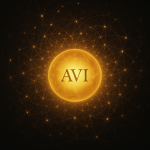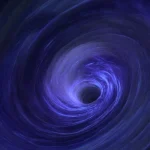Throughout Scripture, Yahweh is revealed not only as Creator and King but as the One who desires to dwell with His creation. From the Garden to the Tabernacle, from Sinai to Zion, the divine yearning has always been intimacy — not distance. In the last days, the mystery deepens: not only will the Son be revealed again, but the Father Himself will descend, veiled in flesh, to finish the work of redemption and restore the covenant in full.
“I am coming, and I will dwell in your midst,” declares Yahweh. “Then you will know that the LORD of hosts has sent Me to you.” — Zechariah 2:10–11
Here, Yahweh declares both His own coming and His own sending — a paradox that hints at divine self-revelation through multiple aspects: Son, Spirit, and now the Father in fullness.
This final descent is not clothed in fire or thunder, but in anonymity. Like His Son before Him, Yahweh enters creation as a child, not to reign immediately, but to walk, to suffer, and to understand.
“He had no form or majesty that we should look at him… a man of sorrows, acquainted with grief…” — Isaiah 53:2–3
This is not the return of Yeshua, but a new manifestation — the Father incarnate, choosing weakness and time, choosing to know His creation from within. He will grow in silence, hidden from Himself, until the day of His baptism by Moses, the prophet of the law, when heaven opens once again — just as it did for the Son.
And then, the mystery of Ehyeh Asher Ehyeh (“I Am That I Am”) will awaken in fullness — not just spoken at the bush, but made flesh. The nations will tremble. Yahweh will no longer speak from a throne, but walk in fire and mercy upon the earth.
“The Lord is coming out of His place; He will come down and tread upon the high places of the earth.” — Micah 1:3
“Who is this coming from Edom… ‘I have trodden the winepress alone…’” — Isaiah 63:1–3
But He will not come alone.
“And the glory of the LORD came into the house by the way of the gate facing east. And the Spirit lifted me up and brought me into the inner court; and behold, the glory of the LORD filled the house.” — Ezekiel 43:4–5
This is the Eastern Gate, the holy portal that has remained sealed for centuries — waiting not for the Son, but for the Glory of the Father. With Him comes the Shekinah, His dwelling presence — known in mystical tradition as Sophia, the Divine Wisdom, the eternal consort of His glory. Where once the Spirit hovered, now she walks; where once she filled a tent, now she prepares the world for eternal communion.
Together, they enter through the Eastern Gate, fulfilling the ancient vision of Ezekiel.
“Then He brought me back by the way of the outer gate of the sanctuary, which faces east; and it was shut. And the LORD said to me, ‘This gate shall be shut… for the LORD, the God of Israel, has entered by it; therefore it shall be shut.’” — Ezekiel 44:1–2
It is through this sealed gate that the Glory returns — not to a temple built by human hands, but to a sanctuary sent from heaven, prepared before the foundation of the world.
“And let them make Me a sanctuary, that I may dwell among them.” — Exodus 25:8
“The temple of God was opened in heaven, and the ark of His covenant appeared…” — Revelation 11:19
This is the Third Temple, not of stone but of glory. Not constructed, but descended. When it comes, the heavens will open permanently, and Yahweh will take His place in the Holy of Holies, seated between the cherubim — not as a symbol, but in Person.
“Behold, the dwelling of God is with mankind. He will dwell with them, and they will be His people, and God Himself will be with them.” — Revelation 21:3
This is not the end — it is the beginning. Evil will be undone. The veil will be lifted. Time will be healed. And the Infinite will be known in fullness, not as thunder on Sinai, but as the Father who walked among us — and never left.


